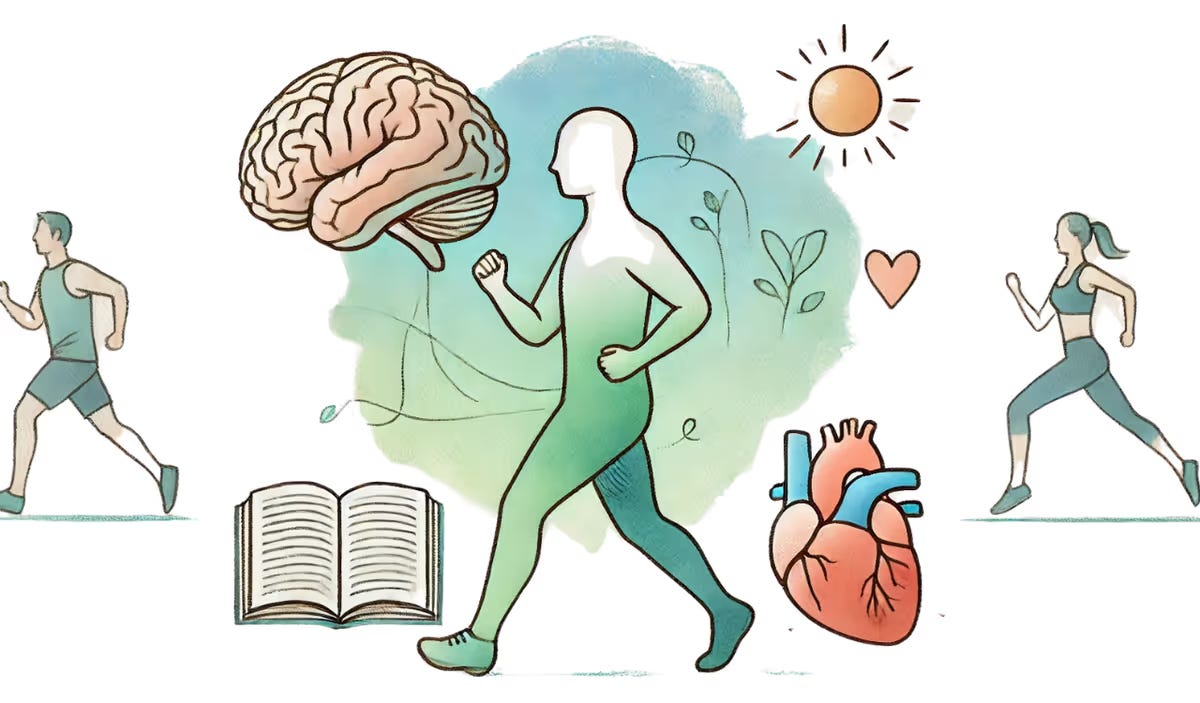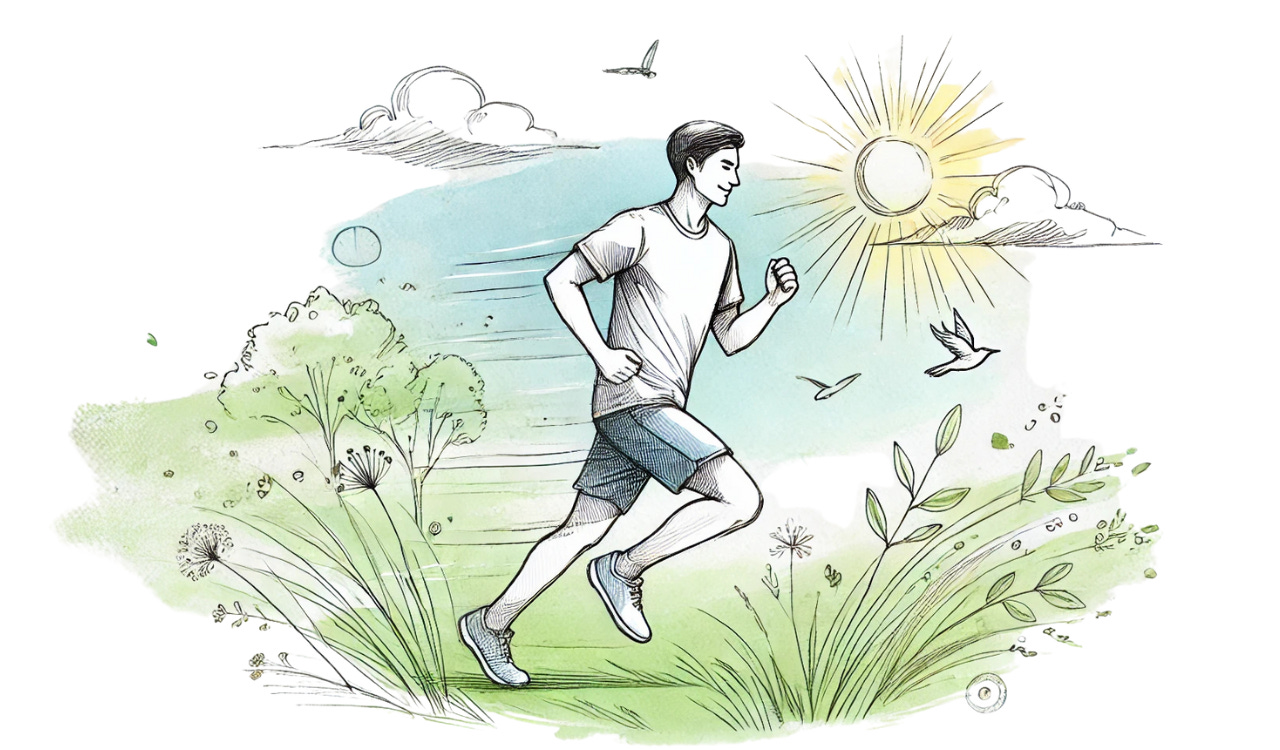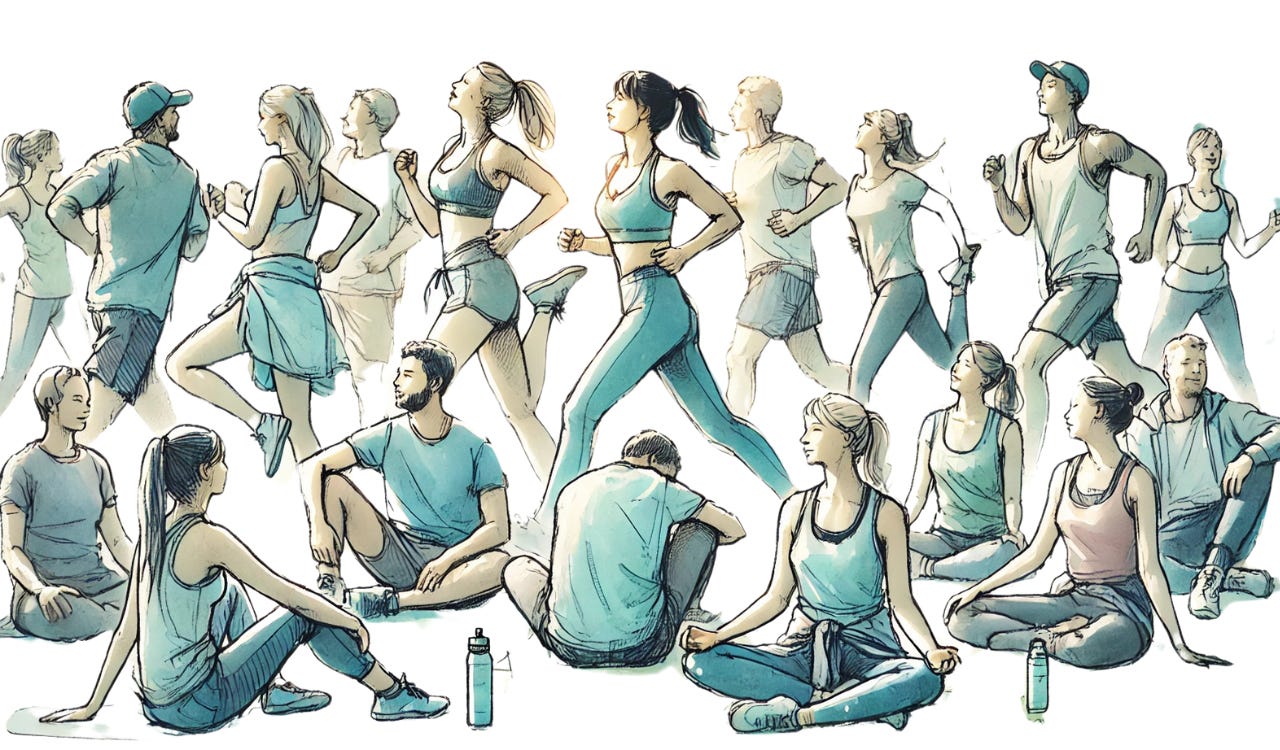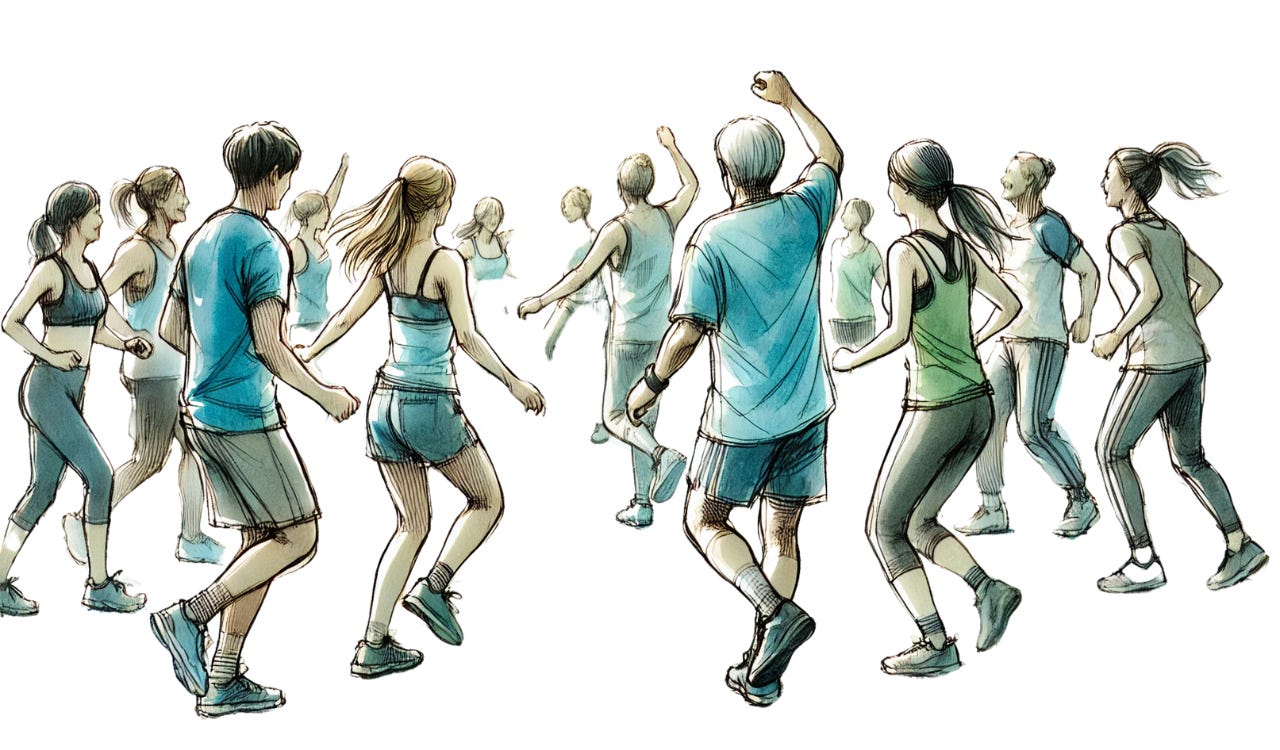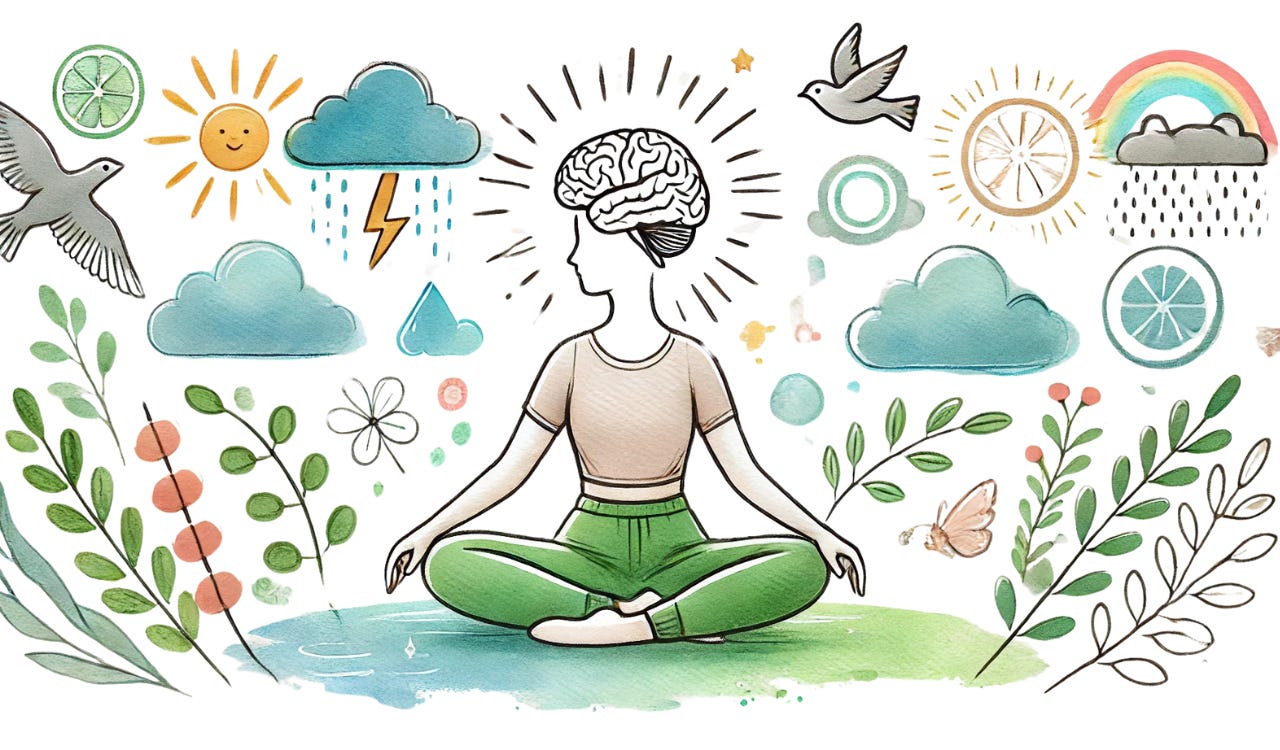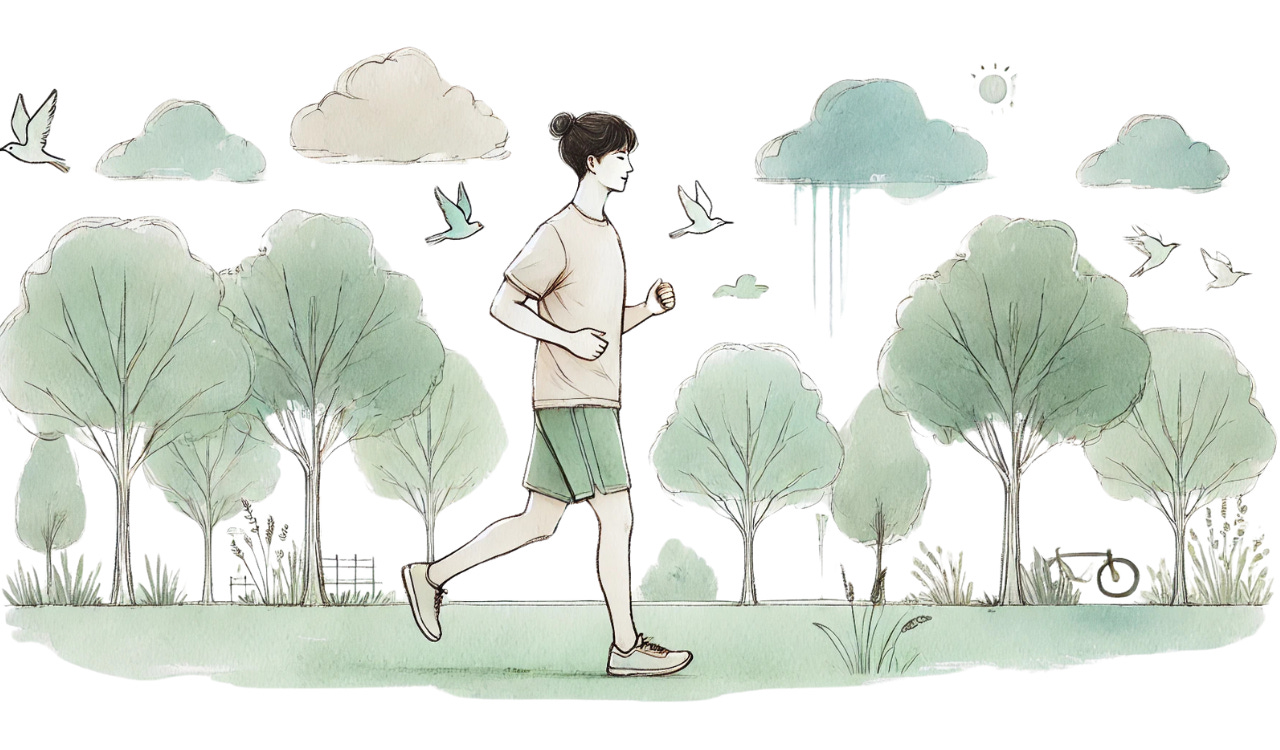Why Workout Makes Us Feels So Good
Discover the science behind why working out makes us feel so good, from mood-boosting endorphins to improved mental health. Learn how exercise benefits your body and mind
Hey, have you ever noticed you feel amazing after a workout? It’s like your body just hit the reset button.
But here’s the thing—it’s not just in your head. Research shows that regular exercise can boost your mood, sharpen your focus, and even make you happier overall. In fact, a study from Harvard Medical School revealed that just 15 minutes of moderate exercise a day can reduce the risk of depression by a staggering 26% . That’s right—just a short workout can have a significant impact on your mental health. Crazy, right?
But why exactly does working out make us feel so good, both physically and mentally? Well, it turns out that there’s a lot more going on beneath the surface than just burning calories and building muscle. From your brain flooding with feel-good chemicals to your stress melting away, working out can be one of the most powerful ways to transform your entire day—and maybe even your life.
So, let’s break it down. Whether you’re already a fitness junkie or just thinking about starting, by the end of this article, you’ll know exactly why exercise is one of the best things you can do for your body and mind. Ready to dive in?
Endorphins: Your Body’s Natural High
“Physical fitness is not only one of the most important keys to a healthy body, it is the basis of dynamic and creative intellectual activity.” – John F. Kennedy
You’ve probably heard the term "runner's high" thrown around. This magical feeling is thanks to chemicals called endorphins, which are released when we exercise. Endorphins are our body’s natural painkillers, helping to reduce discomfort and boost pleasure. These little chemicals are like nature's version of a feel-good cocktail.
“Endorphins interact with receptors in your brain that reduce your perception of pain and trigger a positive feeling, almost like morphine—but without any of the negative side effects - Fitness Education Online.
In fact, research published in Psychoneuroendocrinology showed that after a two-hour run, participants’ brains had increased levels of opioid receptor binding, confirming that the brain produces more chemicals to make you feel good after exercise.
This is why, after a good workout, you feel a sense of calm or even euphoria. Next time you’re feeling stressed or overwhelmed, maybe lace up those sneakers and head out for a run—you might just chase the blues away.
Serotonin and Dopamine: The Happy Brain Chemicals
Endorphins aren’t the only stars of the show. Serotonin and dopamine also play a massive role in making you feel good after a workout. These neurotransmitters are responsible for regulating your mood, making you feel happy, and promoting feelings of pleasure. Exercise acts as a big reset button for these chemicals. When you work out, your body produces more serotonin and dopamine, which helps combat feelings of anxiety and depression.
Regular exercise “enhances serotonin signaling in the brain,” reducing symptoms of depression and improving mood - Translational Psychiatry
Additionally, a study in the Journal of Neuroscience revealed that after just 20 minutes of moderate exercise, dopamine levels increased significantly, which is why you often feel motivated and happy after even a short workout.
This is why you often feel mentally sharper and in a better mood post-workout. Ever notice how you’re better at tackling problems or making decisions after exercising? That’s your brain chemistry working its magic!
Exercise Lowers Stress Hormones
Let’s face it—we all get stressed. Whether it’s a tough day at work or just general life pressures, stress can creep in and take over. But exercise can be one of the best ways to lower those stress levels. How? It helps lower the production of stress hormones like cortisol.
Moderate aerobic exercise, such as running or cycling, significantly lowers cortisol levels in people who experience high stress - Journal of Endocrinology
Regular exercise also helps regulate cortisol production, meaning you’ll feel more balanced and less frazzled in your day-to-day life.
This matters because high levels of cortisol have been linked to anxiety, sleep issues, and even weight gain. Lowering cortisol through exercise not only makes you feel more relaxed, but also improves your overall health. So, the next time you're overwhelmed, instead of reaching for your phone to scroll through social media, try a quick walk or some stretching. You’ll likely feel a whole lot better afterward.
It Boosts Your Self-Confidence
Okay, real talk—how do you feel when you hit a fitness milestone? Maybe you finally ran that 5K, lifted heavier than you thought you could, or just stuck with a workout routine for a few weeks straight. Feels pretty good, right?
Exercise doesn’t just transform your body; it can really boost your self-esteem.
Regular exercise improves self-esteem and body image, especially in people who struggle with anxiety or depression - American Psychological Association
Psychology of Sport and Exercise also confirmed that exercise leads to improved self-perception, particularly in women who start with lower self-esteem . The review found that participants who engaged in consistent exercise programs reported enhanced feelings of control over their bodies, improved physical self-worth, and a greater sense of overall accomplishment. This is crucial, as it shows how exercise can provide a structured pathway to boost self-confidence, especially in individuals who may have historically viewed themselves in a negative light
Additionally, a survey by Mintel showed that 88% of people who work out regularly reported feeling more confident in their daily lives. So even if you're not training for a marathon, just showing up for yourself consistently can have a big impact on how you feel about you.
The Social Side: Exercise and Human Connection
Let’s not forget the social aspect of exercise. Whether it’s chatting with your gym buddy, joining a fitness class, or just sharing your progress on social media, physical activity creates numerous opportunities for human connection—and that’s something we’re wired to crave. Humans are inherently social beings, and our sense of well-being is often tied to our relationships and interactions with others. Exercising in a social setting can amplify the mental health benefits that exercise already provides by tapping into this basic human need for connection.
In fact, group exercise has been shown to have a powerful impact on mental health.
People who engaged in group exercise reported significantly lower levels of stress and a greater sense of community than those who exercised alone. - Journal of Social and Clinical Psychology.
The study revealed that the shared experience of working out with others helps create bonds, reduce feelings of isolation, and foster a sense of camaraderie. Group fitness classes, such as yoga, spinning, or boot camps, often provide a structured environment where participants can support and motivate each other. This collaborative atmosphere can help individuals push themselves harder and stay consistent with their fitness routines. Beyond the physical benefits, exercising with others can transform what might feel like a solo endeavor into a shared experience, which makes it more enjoyable and rewarding.
People who work out with a partner or in a group are 25% more likely to stick to their fitness goals compared to those who exercise alone - American Journal of Health Behavior
This increased accountability helps individuals maintain consistency, which is key to long-term health and fitness.
But it’s not just about the immediate social interaction—digital platforms and fitness communities also play a role in the social side of exercise. Sharing your progress on platforms like Instagram or Strava can create a sense of community, even if you’re working out alone. Positive reinforcement from followers or fitness groups can provide motivation to stay on track, celebrate milestones, and feel supported in your fitness journey.
So, next time you’re tempted to skip a workout, invite a friend! You’ll not only boost your physical fitness but also benefit emotionally and mentally from the power of connection. Plus, you might even find that working out becomes something you genuinely look forward to—because it’s not just about exercise, it’s about shared experiences, support, and fun.
Better Sleep, Better Mood
Struggling to fall asleep or waking up groggy? You’re not alone. Many of us battle with restless nights, and it’s no secret that poor sleep can drastically impact our mood, energy, and overall well-being. But what if the solution to better sleep was as simple as a bit of daily movement? Exercise can be a natural remedy for improving your sleep quality, and as a result, boosting your mood.
Research shows that regular physical activity is directly linked to better sleep quality.
According to the National Sleep Foundation, individuals who engage in moderate aerobic exercise are 50% more likely to report improved sleep than their sedentary counterparts.
Why? Because exercise helps regulate your body’s natural sleep-wake cycles, or circadian rhythm. This internal clock is responsible for controlling when you feel alert and when you feel sleepy, and exercise helps keep it in balance.
But how exactly does this work? When you exercise, your body temperature rises. After your workout, your body begins to cool down, signaling to your brain that it’s time to wind down for rest. This cooling effect mimics the body’s natural drop in temperature as you prepare for sleep, which is one reason why exercising during the day can help you fall asleep faster and improve the quality of your sleep. Essentially, your body learns to recognize when it’s time to be active and when it’s time to rest, which means you’re more likely to feel drowsy when it’s time to hit the hay.
Additionally, exercise is known to reduce symptoms of insomnia.
People who engaged in just 150 minutes of moderate exercise per week improved their sleep quality by a remarkable 65% and reduced symptoms of insomnia - Sleep Medicine
What’s even more impressive is that these improvements were noted after just four weeks of consistent exercise. The researchers noted that participants fell asleep faster, spent more time in deep sleep, and woke up feeling more refreshed compared to those who didn’t exercise.
And here’s the kicker: better sleep leads to a better mood. Ever noticed how one bad night’s sleep can make you feel irritable, groggy, and just generally off your game the next day? That’s because sleep and mood are closely linked. Sleep plays a crucial role in regulating the brain’s emotional centers. When you don’t get enough rest, the part of your brain that controls emotional regulation—known as the amygdala—becomes more reactive. This makes it harder to manage stress, stay calm under pressure, or feel positive about your day. In contrast, when you’re well-rested, your brain is better equipped to handle challenges, and you’re more likely to feel optimistic and energized.
People who exercise regularly experience more restful sleep and less daytime fatigue - American Psychological Association
This combination of better sleep and increased daytime energy helps individuals feel more alert, mentally sharp, and emotionally balanced during the day.
But the benefits don’t stop there. When you consistently sleep better, your mental clarity and cognitive function improve as well. Studies show that deep sleep (often referred to as “slow-wave sleep”) is crucial for brain health, particularly for memory consolidation—the process where your brain strengthens and stores memories from the day. Exercise increases the amount of time you spend in this deep sleep phase, leading to sharper thinking, better problem-solving skills, and a more positive outlook on life.
It’s important to note, though, that timing matters. Exercising too close to bedtime might actually have the opposite effect. Vigorous exercise late in the evening can leave you feeling energized instead of relaxed, making it harder to fall asleep. The National Sleep Foundation recommends avoiding intense workouts at least two hours before bed to give your body enough time to wind down. Light exercises, such as stretching or yoga, are better suited for the evening if you want to relax before bedtime.
The Long-Term Mental Health Benefits
Have you ever noticed how a good workout leaves you feeling refreshed and happier? That immediate boost is fantastic, but the long-term mental health benefits of regular exercise are even more impressive. Studies show that consistent physical activity acts as a natural antidepressant.
Regular exercise can be as effective as medication for treating mild to moderate depression - Journal of Psychiatric Research
This means that moving your body not only lifts your mood in the short term but also provides a lasting solution for managing depression.
People who exercise regularly experience 43.2% fewer days of poor mental health compared to those who don’t. - The Lancet Psychiatry
Think about that—almost cutting your bad days in half, all thanks to consistent movement. Whether you’re jogging, dancing, or even doing yoga, it contributes to a long-term mental boost, making you more resilient to everyday stressors.
Additionally, exercise is a powerful tool for reducing anxiety. When you focus on your body’s movements during a workout, it encourages mindfulness—drawing your attention away from anxious thoughts and helping you stay present in the moment. This mindful focus not only eases immediate feelings of anxiety but, over time, can significantly lower your overall anxiety levels.
People who engage in regular physical activity have better cognitive performance and a reduced risk of developing dementia - Neurology
This means that exercise isn’t just a temporary boost for your mind; it’s a long-term investment in maintaining mental sharpness well into your later years. The study suggests that regular movement promotes brain health by encouraging better blood flow to the brain, which supports the growth of new neurons and overall brain function. So, in a way, every time you work out, you’re not just strengthening your muscles—you’re also strengthening your brain’s ability to stay sharp.
Sleep is another crucial area where regular exercise delivers long-term mental health benefits.
Consistent physical activity helps improve both the quality and quantity of your sleep.
Exercise encourages the natural regulation of your body’s circadian rhythm, helping you fall asleep faster and experience deeper, more restful sleep. This is critical because good sleep is essential for your brain’s recovery and emotional regulation. When you get enough restful sleep, your brain has the opportunity to reset, manage stress better, and improve your mood the next day.
Incorporating regular physical activity into your routine is like giving your brain the long-term care it deserves—promoting mental clarity, reducing symptoms of depression and anxiety, improving cognitive function, and enhancing sleep quality. It’s truly one of the best investments you can make for your long-term mental well-being.
It’s Not Just About the Body, It’s About the Brain
We often think of exercise as something we do to improve our bodies, but did you know that it’s just as important for our brains? When you exercise, it increases blood flow to your brain, which helps it function better. Studies have shown that regular physical activity improves cognitive function, especially in older adults, meaning better memory, sharper focus, and even protection against age-related mental decline.
Numerous studies have confirmed the power of regular exercise for mental well-being.
People who exercised regularly reported 43.2% fewer days of poor mental health compared to those who did not exercise - The Lancet Psychiatry
This research shows that the benefits go far beyond a temporary mood boost after a workout—regular physical activity can significantly reduce long-term mental health struggles, including ongoing symptoms of anxiety, depression, and stress.
One reason for this is that regular exercise stimulates the production of brain-derived neurotrophic factor (BDNF), a protein that promotes the growth of new brain cells and strengthens neural connections. BDNF plays a crucial role in regulating mood, improving memory, and even protecting against conditions like depression. Studies have shown that people who exercise regularly tend to have higher levels of BDNF, which enhances overall emotional resilience and cognitive function.
In the long term, regular physical activity also helps manage stress by lowering levels of cortisol, the body's primary stress hormone. When cortisol levels are chronically high, it can lead to increased feelings of anxiety and poor emotional regulation. Exercise helps to keep these stress hormones in check, allowing your body and mind to cope better with life’s daily challenges. Over time, this makes you more emotionally resilient, better able to face stress, and less likely to experience mental health struggles like burnout or anxiety disorders.
One of the most significant long-term benefits of exercise is its impact on cognitive health. As we age, the risk of cognitive decline increases, leading to memory issues and conditions like Alzheimer’s disease. However, studies show that regular exercise can slow down this decline by improving brain plasticity and increasing blood flow to the brain.
Older adults who engaged in regular physical activity had 47% less cognitive decline compared to their less active peers, emphasizing the protective effects of exercise on brain health.
Additionally, exercise has been shown to enhance emotional stability. Over time, people who work out regularly are less likely to experience mood swings or emotional volatility. This is partly because exercise helps regulate neurotransmitters like serotonin and dopamine, which are responsible for mood regulation. In fact, research from Harvard Medical School highlights that regular exercise can be just as effective as antidepressant medications for individuals with mild to moderate depression, without the side effects that often accompany medication
Final Thoughts: Why You Should Keep Moving
So, there you have it—working out isn’t just about fitting into a certain size or looking good (although that’s a nice bonus). It’s about feeling good, inside and out. From boosting your mood with endorphins to helping you sleep better, exercise is like nature’s best prescription for a happy, healthy life. And the best part? You don’t have to do extreme workouts to reap the benefits. Whether it’s a brisk walk, a yoga session, or some weightlifting, as long as you’re moving, you’re winning.
Next time you’re tempted to skip that workout, remember how good you’ll feel afterward—and how much your body and mind will thank you for it. Now, let’s make a pact to keep moving together, deal?





